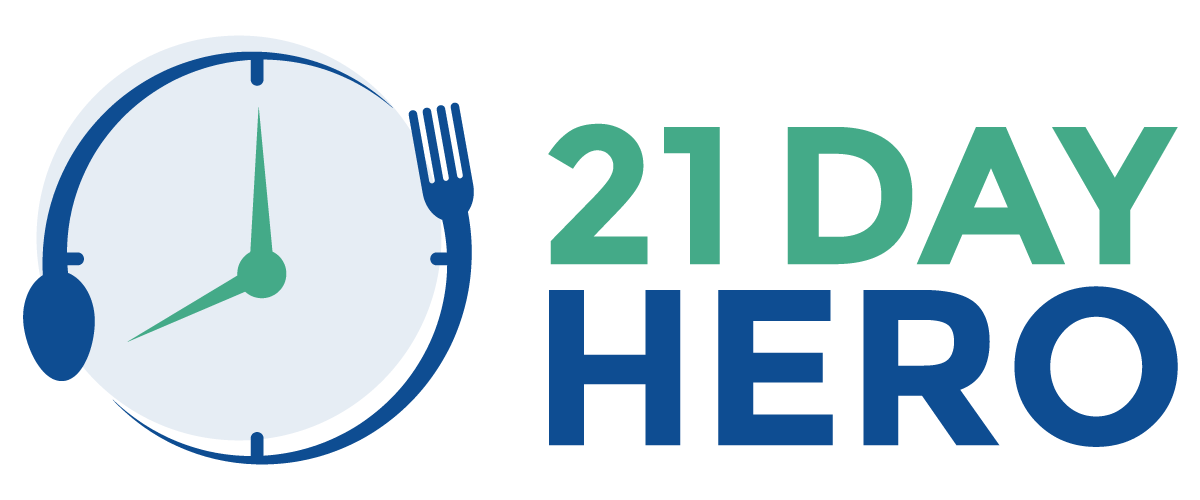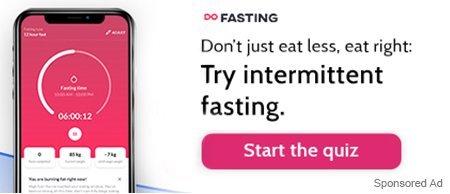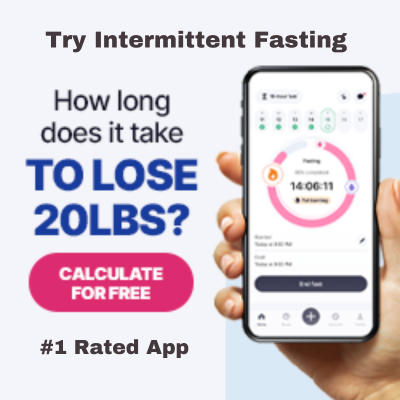Why Do People Fast | What Breaks a Fast | What Components Constitute Toothpaste | Does Toothpaste Break a Fast? | Oral Hygiene While Fasting
Many people these days are opting for intermittent fasting as a lifestyle choice to improve their health, lose weight, and live longer. It has gained a lot of popularity in recent years, and it’s not hard to see why.
By restricting calorie intake for specific periods, individuals can burn fat, increase energy levels, and even enhance their cognitive function. It’s a simple yet effective way to kickstart a healthier lifestyle, and it’s no surprise that more and more people are adopting this eating pattern.
Does Toothpaste Break a Fast?
Technically, no it does not, but there are many contributing factors based on the type of toothpaste you use. Be sure to use a very high quality toothpaste, preferably one with more natural ingredients.
While intermittent fasting has proven to offer numerous health benefits, some individuals might wonder whether toothpaste can break their fast when brushing their teeth.
Oral hygiene is an essential aspect of overall health, and maintaining good dental health is crucial for preventing various dental and oral problems. But does using toothpaste while fasting affect the benefits of intermittent fasting? In this article, we will explore whether toothpaste breaks a fast and how brushing teeth while fasting can affect the benefits of intermittent fasting. We will also provide tips for maintaining oral hygiene during fasting.

Why Do People Fast?
Fasting is a practice that has been observed across cultures and religions for thousands of years. It involves abstaining from food or drink for a period of time, often for spiritual or health reasons. While the practice of fasting varies depending on the culture and tradition, there are several common reasons why people choose to fast.
One of the most common reasons people fast is for its health benefits. Intermittent fasting, for instance, has been shown to improve insulin sensitivity, reduce inflammation, lower blood pressure, and promote weight loss.
Fasting has also been found to increase longevity and reduce the risk of chronic diseases like diabetes, heart disease, and cancer. In addition to these benefits, some people also choose to fast for mental clarity, increased energy, and better sleep. If you want to know more about intermittent fasting, check All about Intermittent Fasting in one place.
Another reason people fast is for spiritual or religious reasons. Fasting is a common practice in many religions, including Christianity, Islam, Judaism, and Hinduism. It is often seen as a way to purify the body and mind and to focus one’s attention on spiritual matters.
Some people also choose to fast for personal reasons, such as to challenge themselves, to break bad habits, or to detoxify their bodies. Fasting can be a difficult practice, requiring discipline and self-control, but it can also be a rewarding experience, leading to a greater sense of self-awareness and personal growth.
Whatever the reason, fasting can be a powerful tool for improving physical and mental health, deepening one’s spiritual practice, and achieving personal goals.
What Breaks a Fast?
The primary goal of intermittent fasting is to trigger the body’s fat-burning mechanisms, which can result in weight loss and other health benefits. But the opinions on which foods and beverages break a fast during the intermittent fasting journey vary.
The body enters fat-burning mode during intermittent fasting, regardless of the approach used, when blood sugar and insulin levels significantly decrease and remain so for some time. The body then turns to stored fat for fuel since it has exhausted the energy from the previous meal.
It’s essential to be mindful of what you consume during fasting to get the most benefits from intermittent fasting. Here are some things to avoid:
Calories
Consuming calories during the fasting period can break the fast and halt the fat-burning process. This includes any food or drink that contains calories, such as juice, soda, or even a piece of gum.
Protein
Consuming protein, such as in the form of protein bars, shakes, or supplements, can also break a fast. Protein stimulates insulin secretion, which can interfere with the fasting process.
Carbohydrates
Consuming carbohydrates, such as bread, pasta, fruits, or vegetables, can also break a fast. Carbohydrates also stimulate insulin secretion, which can affect the fasting process. However, Studies indicate that consuming less than 50 grams of carbohydrates a day does not raise blood sugar levels enough to stimulate insulin release. Increased insulin levels are what break the fast.
Fat
Consuming a significant amount of fat, such as in the form of oils or butter, can also break a fast. Fat triggers the release of enzymes that break down fat for energy, which can interfere with the fasting process.
Artificial Sweeteners
Some artificial sweeteners, such as aspartame, saccharin, or sucralose, may trigger an insulin response and break a fast. It’s best to avoid them during the fasting period.

What Components Constitute Toothpaste?
Toothpaste is a widely-used dental hygiene product that most people use daily, but few are aware of its various ingredients and their functions.
There are different types and brands of toothpaste available in the market, but most of them share common ingredients. Understanding the different components of toothpaste can help you choose the right toothpaste that suits your dental needs.
Fluoride
One of the essential ingredients of toothpaste is fluoride, which is present in every ADA-certified toothpaste. Fluoride is a mineral that strengthens the tooth enamel, making it more resistant to decay and wear caused by acidic food and drinks.
Detergents
Another key ingredient in toothpaste is detergents, also known as foaming agents or surfactants. These chemicals help remove different types of substances, including oil and water, from the teeth and mouth. When combined with water during brushing, detergents make toothpaste foamy, which helps coat teeth with other active substances.
Abrasives
Abrasives are also an essential ingredient in toothpaste. They help remove surface stains and food particles from the teeth and polish them to remove discoloration. Abrasives should be used with care to avoid damaging the tooth enamel and irritating the gum line. Commonly used abrasives include alumina, dicalcium phosphate, hydrated silica, calcium carbonate, and baking soda (sodium bicarbonate).
Humectants and surfactants
These are essential components of toothpaste that prevent it from drying out and crumbling. Humectants help to maintain the paste-like texture and retain water in toothpaste. Some natural toothpaste brands use coconut oil as the base for these components.
Flavor
Flavorings are added to toothpaste to improve taste and mask the taste of detergents, such as Sodium Lauryl Sulfate (SLS).
This shows that toothpaste is composed of various chemicals and ingredients that serve different functions.
Ok, So Does Toothpaste Break a fast, Contain Carbohydrates or Sugar That Would Break the Fast?
Toothpaste often contains sweeteners like sorbitol, which can provide a small amount of carbs and calories. However, the quantity of sweetener used in toothpaste is usually minimal, and therefore, it’s unlikely to have any notable effect on a fast.
While sugar or carbs that might interfere with fasting aren’t typically present in toothpaste, some brands add artificial sweeteners to enhance the flavor.
Although theoretically, sweetened toothpaste could potentially break a fast, it’s highly unlikely to happen unless you swallow a significant amount of toothpaste. Therefore, moderate use of toothpaste should not interfere with the benefits of fasting.

But Can You Brush Teeth While Fasting?
Yes, it is important to continue practicing good oral hygiene, including brushing your teeth, while intermittent fasting. However, it is important to use toothpaste in moderation and to choose a brand that does not contain significant amounts of sugar or artificial sweeteners, as these could potentially break the fast.
Also, it is important to avoid swallowing toothpaste while fasting to prevent any potential impact on blood sugar or insulin levels. You can also use a tooth stick to clean the teeth while fasting.
Maintaining Oral Hygiene While Fasting
As we have mentioned earlier, maintaining good oral health during a fast is good because the mouth can become dry during fasting, and bacteria can accumulate on teeth, leading to bad breath and potentially even dental decay. That shows that it’s crucial to maintain good oral hygiene even when fasting.
Here are some tips for maintaining oral hygiene during fasting:
Brush Your Teeth Regularly
We said earlier that it’s Ok to brush one’s teeth during fasting to maintain good hygiene. Brush your teeth at least twice a day, preferably after every meal.
And if you’re concerned about the potential impact of toothpaste on your fast, use fluoride-free toothpaste or brush your teeth with only water.
Floss Your Teeth
Flossing helps remove food particles and plaque from between your teeth, preventing gum disease and tooth decay. Floss your teeth once a day, preferably before brushing your teeth. If you find it challenging to floss during fasting, you can try using a water flosser, which uses water to remove food particles and plaque.
Use Mouthwash
Mouthwash can help kill bacteria in the mouth, freshen your morning breath, and prevent gum disease. Use an alcohol-free mouthwash to avoid breaking your fast, and rinse your mouth after every meal.
Chew Sugar-Free Gum
Chewing sugar-free gum can help stimulate saliva production, which helps neutralize the acid in the mouth and prevent tooth decay.
However, research shows that the taste of sweetness on the tongue receptors alone can stimulate insulin release independent of calorie intake, so exercise caution with gum. Choose gum with xylitol, a natural sweetener that doesn’t break a fast, and chew it whenever you notice your breath is not fresh.
The Best Type of Toothpaste?
I personally prefer to use fluoride-free natural toothpaste. Fluoride has been shown to have some negative side effects, so I use different types of charcoal toothpaste, or more basic mint flavored fluoride-free varieties. The key to preventing cavities, is avoid processed sugar, potato or other ships, and starches which can cause cavities when it sits in your tooth over time.
To Sum Up
Brushing your teeth generally does not break a fast. Intermittent fasting is definitely worth considering if you’re looking to improve your overall health, as shown in this study.
But if you want to get the most out of your fasting period, make sure you’re paying attention to what you’re using to clean your teeth. And suppose you’re bothered whether brushing while fasting breaks the fast. In that case, we want you to know that toothpaste is generally considered safe as long as it contains no artificial sweeteners or other ingredients that could disrupt your fasting process.
If you’re looking for alternatives to toothpaste, water or baking soda are both good options.
But as always, it’s a good idea to check in with your healthcare provider before starting any new dietary or health routine. They can help you figure out the best approach for your specific needs and ensure that you’re taking care of your body in the most effective way possible.
Also need help fasting? Check out the Best Intermittent Fasting Mobile Apps we recommend to help you on your journey.












